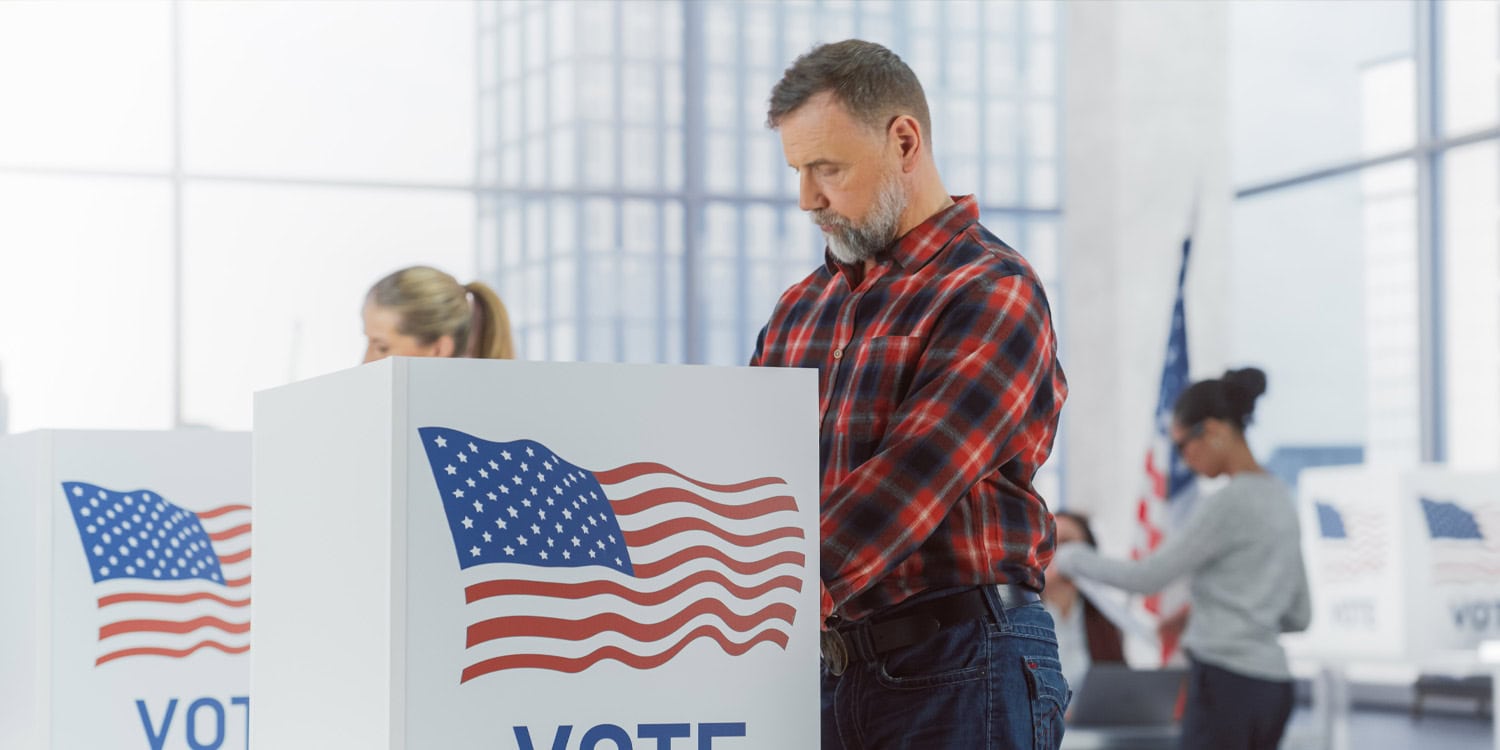In a recent study published in American Politics Research, political scientists examined a unique 2024 primary election race in Alabama’s First Congressional District, where two sitting members of Congress from the Republican party, Jerry Carl and Barry Moore, faced each other due to redistricting. The researchers wanted to understand the factors that influenced voters’ choices in this head-to-head race between two incumbents. Their findings suggest that alignment with the “Make America Great Again” (MAGA) faction of the Republican party was more influential than traditional incumbency advantages, with the MAGA-aligned candidate, Barry Moore, narrowly defeating Carl in a tightly contested race.
The motivation behind the study stemmed from the rare nature of elections where two incumbents compete against each other, a situation usually triggered by redistricting. Such matchups, called “dueling incumbent primaries,” create unique conditions for voters, who must decide between two current officeholders from the same party.
In this instance, redistricting following the 2020 census and the 2023 Supreme Court ruling in Allen v. Milligan, which required Alabama to create a new minority-majority district, reshaped district boundaries. This change displaced Moore from his previous district, compelling him to run in Carl’s district. The researchers wanted to analyze the voting preferences and factors that influenced the outcome, particularly since both incumbents held similar political positions but had differing levels of alignment with the MAGA faction.
“I have been doing quite a bit of work lately on dueling incumbent election contests and the Alabama Congressional District 1 2024 GOP primary was the latest to materialize,” said study author Seth C. McKee, a professor at Oklahoma State University and co-author of the book Rural Republican Realignment in the Modern South: The Untold Story. “Incumbent duels only arise because of redistricting, and it is very interesting to see which incumbent wins and why, since both incumbents run in a district that typically contains a nontrivial share of their voters prior to redistricting.”
To understand voters’ choices in this election, the researchers conducted a large-scale survey among likely Republican primary voters in Alabama’s newly configured First Congressional District. This survey was conducted shortly before the election on Super Tuesday and targeted registered Republicans who had voted in previous primaries. The survey, conducted online and by text, included 2,389 responses, capturing views on candidate recognition, campaign engagement, and policy preferences on key issues.
“This study was the first to use a large-N survey to probe voter preferences in a dueling incumbent U.S. House primary,” McKee noted. “There will hopefully be more work using similar survey data in future dueling incumbent contests.”
The survey results showed that while Carl retained more constituents from his previous district, Moore ultimately gained more support because of his strong association with the MAGA wing of the party. This suggests that a shared history with voters, while beneficial, may not always outweigh ideological alignment in a nationalized political climate.
Moore’s strong anti-spending stance and isolationist views on issues like aid to Ukraine resonated with voters who identified with Trump’s policies. Even though both Carl and Moore shared similar positions on many conservative issues, Moore was more closely associated with the “America First” approach central to Trump’s platform. Survey respondents who favored these policies and had high favorability toward Trump were much more likely to support Moore.
“The average person should see that the so-called advantage of being an incumbent was not necessarily the deciding factor for who won the specific contest we examined,” McKee told PsyPost. “In fact, the incumbent who retained substantially more constituents in the redrawn district where this incumbent duel took place, actually lost.”
“In contrast, the winner appeared to prevail because this incumbent was better aligned with the ascendant MAGA wing of the Republican Party. Hence, more voters broke toward the incumbent retaining fewer district constituents because he was able to nationalize the campaign as the more MAGA/Trump aligned candidate.”
The researchers also identified that voters’ familiarity with candidates influenced their decisions. Respondents who only recognized Carl overwhelmingly supported him, whereas those who only recognized Moore leaned toward him. However, among those who recognized both candidates, support was relatively balanced. Personal contact from the candidates’ campaigns also played a role, with contact from either campaign increasing the likelihood of support for that candidate.
“We were surprised to see how engaged these primary voters were in terms of knowing who these candidates were and yet so many were undecided with about a week to go before the primary date,” McKee said.
The study has certain limitations. For one, Alabama’s policy of requiring in-person voting on Election Day may have contributed to a high percentage of undecided voters in the survey, which was conducted about a week before the election. Additionally, the timing of the survey meant it may not have fully captured the last-minute shifts in voter preferences that often occur in primary races.
“With it being opened as a text-to-web survey one week before the election, the vast majority of respondents take the survey within a 24–48-hour window and thus we captured a very large chunk of voters who were undecided,” McKee explained. “In hindsight, we would have been better off gauging voter preferences by opening the survey just a day or two prior to the election. The high share of undecided voters is in part due to the fact that Alabama does not have no-excuse absentee voting prior to election day (meaning almost all voters cast a ballot on Election Day).”
The study, “MAGA Trumps the Incumbency Advantage in a Dueling Incumbent Primary,” was authored by M. V. Hood III, David Hughes, and Seth C. McKee.




